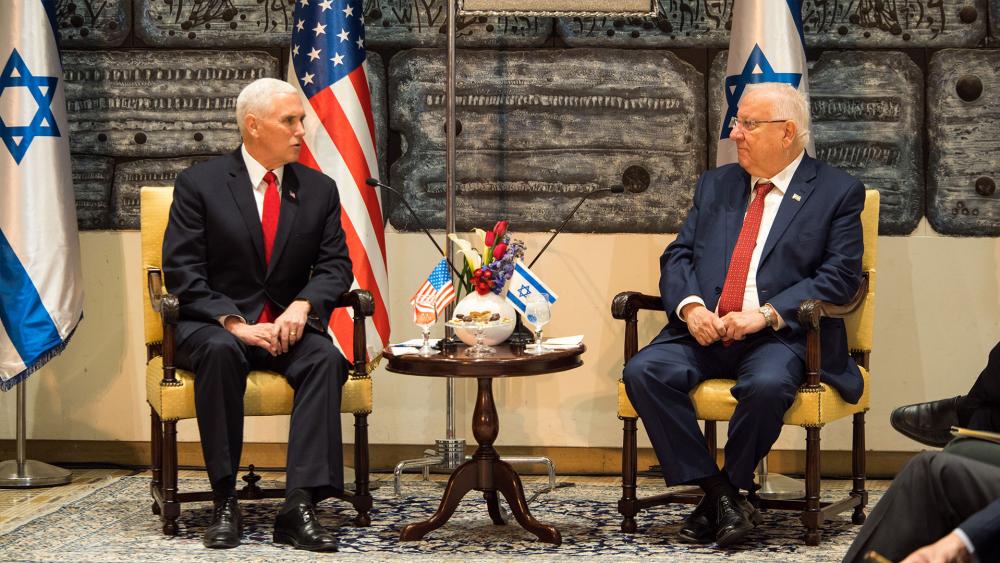JERUSALEM, Israel – This past week, just a few short weeks after the White House announced the US would recognize Jerusalem as Israel’s capital, President Trump sent Vice President Mike Pence to the Middle East with a mission: to stand with Israel and to reassure Arab alies that the US has a vision for peace. In the eyes of many, especially in Israel, he did both, with grace and confidence.
Late last year, CBN’s David Brody sat down with the vice president and asked him about his upcoming trip. He responded, “If the world knows nothing else, the world should know this: under Donald Trump, America stands with Israel, and we’ll be delivering that strong message.”
He added, It was 70 years ago that the nation of Israel, in a miracle of history, came back into existence in its ancient homeland and every day, Americans have cherished that accomplishment, and we’ll be here to celebrate that.”
Celebrate, he did, earning high praise from Israeli Prime Minister Benjamin Netanyahu. During one of their early press appearances, Netanyahu remarked, “Mr. Vice President, I’ve had the privilege over the years of standing here with hundreds of world leaders and welcome them, all of them, to Israel’s capital, Jerusalem. This is the first time that I stand here where both leaders can say those three words: Israel’s capital, Jerusalem.”
Pence became the first US vice president ever to be invited to address the Israeli Knesset [parliament]. He kept his cool when Israeli-Arab lawmakers protested the US policy change toward Jerusalem. After the protesters were escorted out, the vice president calmly said, “It is deeply humbling for me to stand before this vibrant democracy.”
He shared his heart, drawing comparisons between American and Israeli history and making frequent references to passages in the BIble.
Pence remembered that the Jewish people held fast to an age-old promise from the Lord, that “even if you have been banished to the most distant land under the heavens, from there [I] will gather you and bring you back…to the land which your fathers possessed.”
And later, for emphasis, he re-stated the heart of his message to sustained applause: “Jerusalem is Israel’s capital, and as such, President Trump has directed the State Department to begin initial preparations to move our embassy from Tel Aviv to Jerusalem…and the embassy will open next year.”
Orthodox Rabbi Meir Soloveichik attended the Pence address and said it was “One of the most Zionist speeches ever given by a non-Jew in the Knesset.” Soloveichik called it “a milestone in American-Israeli relations and a window into the heart of many Americans, who like Mr. Pence, observe Israel’s emergence with wonder and reverence.”
Israeli President Reuven Rivlin referred to the vice president as a “mensch,” a very high compliment in Yiddish meaning a person of integrity.
Pence’s emotional visit with his wife, Karen, to Yad VaShem, Israel’s Holocaust Memorial, and his prayers at the Western Wall sealed a visit like few others in the history of American diplomacy.
While in Israel, he also promised that change is coming to the US-signed nuclear deal with Iran. That will put Washington on a collision course with European allies who are doing big business with Tehran. And with boycotts and curses, Palestinian leaders have set a hostile course against Washington’s Jerusalem decisions on the international stage.
Still, the coming debate will show the US and Israel largely united over the city King David made his capital more than 3,000 years ago.


